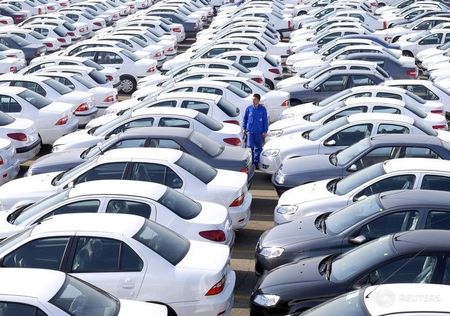

Investing.com– Chinese language auto half makers, notably these with vegetation in North America, are anticipated to see restricted disruptions even when the U.S. imposes steep commerce tariffs on Mexico, as just lately threatened by President-elect Donald Trump.
UBS additionally famous that Trump’s risk of 10% tariffs on Chinese language imports introduced a restricted influence on auto half exports from native vegetation, on condition that the ten% is under market forecast.
For corporations with vegetation in Mexico, UBS mentioned that it will likely be troublesome for U.S. producers to switch their dependence on Chinese language companies. The brokerage mentioned that Chinese language companies and their U.S. prospects had been prone to share tariff prices, after doing so throughout Trump’s first administration.
Excessive U.S. dependence additionally provides auto half makers extra room to discount over sharing prices, UBS mentioned.
UBS famous that some Chinese language companies had vegetation within the U.S., lending them immunity from tariffs. Fuyao Glass Trade Group (HK:) already has a plant within the U.S. and plans to extend capability in 2025, mitigating dangers from Sino-U.S. commerce frictions.
“As Fuyao holds a worldwide/US market share of c.35%/30%, and its US friends’ scales are comparatively small, we expect Fuyao is unlikely to get replaced by abroad friends and will cross a part of tariffs on to the downstream,” UBS analysts wrote in a observe.
UBS additionally forecast little influence from tariffs on Huizhou Desay SV Automotive Co Ltd (SZ:) and Tesla provider Ningbo Tuopu Group Co Ltd (SS:). For Desay, the brokerage famous that it had restricted publicity to Mexico manufacturing, and was anticipated to see sturdy demand from native gamers resembling Li Auto (NASDAQ:) and Byd. Desay additionally has manufacturing capability in Germany and upcoming vegetation in Spain and Indonesia.
Tuopu, which is a key provider to Tesla (NASDAQ:), can also be little uncovered to Mexico, and can doubtless have the ability to shift U.S. orders to imminent vegetation in Malaysia and Poland.